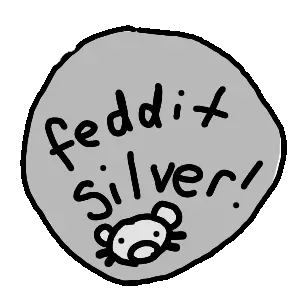

I think if more people took on tasks like running the communities while educating people the benefits of the fediverse, then we can see a bit more growth.
This is the way - be the change you want to see in the world.
Lemmy isn’t the size of Reddit, so it isn’t at a place where the vast majority of users can just passively consume content.
If there’s a niche for a community then start it. If you want more Mods, keep an eye out for active posters and ask if they want to help. If you are unsure about starting a community or want help from the start (as it might be popular) then start a thread on !fedigrow@lemm.ee. The more active communities, the more likely it is for the next wave of users to stick around and some of them might start new communities.
If you build it they will indeed come and stay.







Well there’s the dilemma. We all thought Reddit was The Good Place until we realised it was actually The Bad Place. With Lemmy it may depend on your instance.